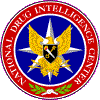ARCHIVED
![]() To Contents
To Previous Page To Next Page
To Publications Page To
Home Page
To Contents
To Previous Page To Next Page
To Publications Page To
Home Page

|
National Drug Intelligence Center Massachusetts Drug Threat Assessment Update April 2002 MarijuanaLaw enforcement officials report that marijuana is the most readily available and frequently abused drug in Massachusetts. According to the 1999 National Household Survey on Drug Abuse, 7.5 percent of Massachusetts residents report having abused marijuana in the past month compared with 4.7 percent nationwide. The number of marijuana-related treatment admissions to publicly funded facilities in 1999 (4,263) was higher than the number in 1994 (2,981), according to TEDS. (See Table 1 in Heroin section.) According to DAWN mortality data, marijuana was a factor in four drug-related deaths in Boston in 2000. (See Table 2 in Heroin section.) Marijuana is readily available in Massachusetts. According to FDSS data, federal law enforcement officials seized 27.0 kilograms in FY1997, 161.7 in FY1998, 1,169.1 in FY1999, and 884.9 kilograms in FY2000. In 2002 in northeastern Massachusetts, marijuana produced in Mexico or in southern California, Arizona, or Texas sold for $900 to $1,400 per pound, and higher potency, hydroponic marijuana produced in Canada sold for $4,000 per pound. In western Massachusetts, marijuana produced in Mexico or in southern California, Arizona, or Texas sold for $1,000 to $1,200 per pound, and Canada-produced hydroponic marijuana sold for $3,000 per pound. A marijuana joint sold for approximately $5 throughout the state. Mexican criminal groups based in Mexico or in southern California, Arizona, or Texas produce most of the marijuana that is available in Massachusetts. Marijuana produced in Canada also is available but to a much lesser extent. Local independent Caucasian dealers and abusers, Caucasian criminal groups, and outlaw motorcycle gangs (OMGs) produce small quantities of high quality marijuana for personal use and distribution within the state. Mexican criminal groups transport most of the marijuana available in Massachusetts from Mexico or southern California, Arizona, or Texas. Canadian criminal groups transport smaller quantities of marijuana across the U.S.-Canada border. Mexican criminal groups typically transport marijuana in tractor-trailers and private vehicles via New York City into Massachusetts. Caucasian and Jamaican criminal groups transport marijuana throughout the state. Various criminal groups, gangs, and local independent dealers distribute marijuana in Massachusetts. Caucasian, Jamaican and, to a lesser extent, Dominican criminal groups distribute marijuana at the wholesale level. African American, Asian, Caucasian, Dominican, Jamaican, and other Hispanic criminal groups, gangs, and independent dealers distribute marijuana at the retail level.
|
End of page.